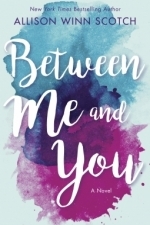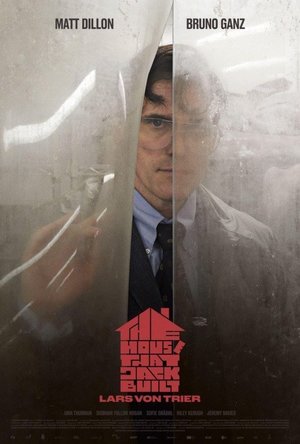
Solitaire City (Ad-Free)
Games and Entertainment
App
Play all your favorite solitaire games such as Klondike, Double Klondike, Spider, FreeCell,...

Decked Builder
Games and Entertainment
App
Decked Builder is the premium deck building app for Magic the Gathering -- providing a sleek user...
Kristy H (1252 KP) rated Between Me and You in Books
Dec 23, 2017
This was a really interesting book, starting with the format. The story is told from both Tatum and Ben's perspectives. No big deal, you think, right? Except Tatum's portions start at the beginning of their journey and go in chronological order, while Ben tells his part of the story backward, starting with how they've fallen apart and going back in time. It's an odd device and definitely takes some getting used to. It was hard to keep some of the dates and timelines straight; it was one of the times where I wished I had a hardcopy of the book so I could flip back and forth more easily.
It also seemed to make the story more repetitive--when you have two people telling the same stories, you're bound to get some repetition. But what was really strange was that it sometimes felt like each chapter was a mini story that needed to reintroduce everything all over again. I don't know why the author felt this was necessary, because it's an oddly compelling book on its own even when neither main character is really that likeable. But we heard over and over about Tatum and Ben's daddy issues, career issues, that he never wrote anything for her. And oh yeah, did we mention that Tatum's an actress and doesn't eat, etc.?
At the core, this isn't really a happy book, despite it being romantic at times. Both Tatum and Ben have a lot of petty issues, but also really serious issues relating to their parents. This is fine, except we hear about it (a lot) due to the repetitive way the story is told. There's a lot of mourning and grieving and there's a dark side that deals with addiction, too. The focus on that fact that Ben has never written a script for Tatum--while this does have a point in the end--this gets to be a little much, too. The problem with all the focus on these things is that I felt like I never really learn a lot about Tatum and Ben in this format. I was always yearning for more. Is the story of two people growing apart interesting? Am I invested in them? (I was.)
It's sad, because despite everything I have said, I found this book weirdly compelling. Maybe it's because Tatum is a famous actress and there's a Hollywood setting, even if it's not really fleshed out. I wanted to know more about Tatum and Ben. I wanted them to work out. I wanted to read the book, even with the odd format and rehashing of things. It's a little hard to describe. It's like watching a romantic comedy where you desperately want the two leads to get together, despite all the odds.
So, I'm still glad I read this one. It was engaging and different. I do wish I knew more about Ben and Tatum and their motivations and what led them together (and apart).
Darren (1599 KP) rated Dolls (2019) in Movies
Jul 2, 2019
When Robert and Sammey discover three creepy dolls in the attic, Robert decides that he wants to use these characters to create his latest story, known as the Attic Dolls. When a sister of a former patient Margaret (Wallace) appears, she warns Sammey about the evil inside the dolls that come out to play when you look away.
Thoughts on Dolls
Characters – Robert is an alcoholic children’s author, he has made mistakes in his life which has left his family facing financial ruin, his daughter struggle to be able to face a college future, he has moved out to focus on his new book, which will see him being joined by his daughter. The latest book idea uses the creepy dolls found in the attic of his mother’s home, which will see him suffer nightmares as he looks to withdraw from his drinking problems. Sammey is his 17-year-old daughter who wants to live with him over her mother, she has been on certain medications, though it is unclear what is wrong with her to need them. She first gets scared by the dolls believing the story she hears about them, while trying to remain rebellious about her future. Margaret was the sister of one of the patient’s of Robert’s mother, she warns the family about the evil from the dolls which might be connected to the deaths.
Performances – Thomas Downey is strong through the film, we believe that he is going through troubles. Trinity Simpson is entertaining in her role, she brings the fear of what is going on to make us believe everything happening. Dee Wallace is the biggest name in the film, she is in a supporting role, which lets her bring the experience to the film.
Story – The story here follows a family that move into a house of a deceased relative only to discover three creepy dolls in the attic, soon strange things start happening around the house as it appears the dolls come to life when people aren’t looking. This story does play into the creepy dolls genre of horror which does to use mental health and addiction to try and reflect the situation going on through the events of the film. It does start by going in one direction, but it does feel like it is going to target on a rampage, then throws another twist to them in and it does seem to rush a lot of the story going on through the film. it does end in a very confusing manor which could make most of the film feel almost redundant.
Horror – The horror in this comes from the dolls which do feel creepy and make us feel uneasy wondering what they will be doing next.
Settings – The film is set in the one location which is the house, it is filled with locations where the dolls could sneak around without being seen, only heard, which does play into the rules created.
Special Effects – The effects in the film are only used when they are needed, they are simply with certain small movements which does help the film unfold.
Scene of the Movie – The dolls appearance.
That Moment That Annoyed Me – The ending.
Final Thoughts – This is a new creepy doll movie, which has been the it feature at the moment, with Child’s Play and Annabelle in the cinema, this one does have a creepy feel to it even if the story does seem to be rushed.
Overall: Creepy Fun horror.
Andy K (10823 KP) rated The House That Jack Built (2018) in Movies
Nov 15, 2019
The story of Jack is a exercise in the extreme. From the opening moments of THTJB, the audience is quickly brought into Jack's world and not released for 2 1/2 hours of brutality.
Jack finds himself in his bright red rape van when he passes a damsel in distress in the form of a woman with a flat tire. He stops and reluctantly agrees to drive her to the nearest auto repair place for assistance. When the plight becomes more complicated, Jack reluctantly agrees to further drive the woman around. Growing impatient with her constant blather and insults at Jack's personality, Jack quickly reaches his limit and destroys the woman quickly using her broken car jack which happens to be lying right next to him in the front seat.
That is just the beginning.
The film is set to 5 "incidents" and an "epilogue" which chronicle several years in Jack's life, including other relationships with woman, his family and random encounters he has all used to fuel his addiction with death. Without detailing them all here, his journey for carnage includes extreme actions including multiple murders, corpse manipulation and even human trophies.
If you are a fan of writer/director Lars von Trier, this will be nothing new to you if you have seen some of his other films including Antichrist, Nymphomaniac or Dogville. His films usually require a strong stomach, but do not shock for shock's sake alone. The vivid imagery in all his films is used not only to proper the narrative, to show the audience something they have not seen before and cross the lines between art and film. His films will repulse some. I won't squabble with those who cannot handle his type of film-making; however, maybe my inner film snob relishes those who give me something different, something to think about after I have finished watching and thought out interesting characters you almost never see any more.
With THTJB, he delves into the human mind well providing voice-over to let us in to what Jack is thinking and maybe helps us include a glimmer of understanding with it. Jack's acts are loathsome, morbid, violent, criminal and terrible, but somehow I was still fascinated by him which comes with good writing. In an interview I watched after viewing the film, von Trier explained he loved writing for Jack because you never knew quite what he was going to say. Several times within the film he is "caught" in an awkward situation and is able to talk himself out of it with absurd, yet believable rhetoric. You certainly don't root for him since his actions are reprehensible, but you are interested in what happens next.
Matt Dillon was overlooked during awards season of 2018. The Academy should've looked his way as they did for Sir Anthony Hopkins in 1991. His performance is gritty, deeply disturbing and very believable. He made Jack seem sympathetic at times even through his extreme violent nature. Sometimes subtle, sometimes over the top. I can't remember a performance of his which was more striking.
A film by Lars von Trier will always propel your intellect after your viewing is complete and this film is no exception. Some of the images the movie provides (not just the kill scenes) are unforgettable, some beautiful, but all very thought out and aligned with precision. He is undoubtedly one of the most unique directors working in film today and I continually look forward to his subsequent offerings!

MSC1: Be Confident in Who You Are
Book and Education
App
Now for iPhone and iPad! • “As you prepare for back to school, don't forget the anxiety...[this...

Ultimate Bike Race Adventure
Games and Entertainment
App
Welcome to the amazing world full of Motorbike rider and racer experts. This ultimate kids bike race...

A Chakra Meditation by Glenn Harrold
Lifestyle
App
A Chakra Meditation is a superb high quality hypnotherapy App by the multi-million selling...

Deep Sleep by Glenn Harrold, a Self-Hypnosis Meditation for Relaxation
Health & Fitness and Lifestyle
App
Download Deep Sleep Now and Sleep Well Tonight! Glenn Harrold's powerful deep sleep hypnotherapy...

ZenScreen - Parental Controls
Lifestyle and Health & Fitness
App
ZenScreen allows you to see what apps your kids use and for how long, set daily limits, bedtime and...


